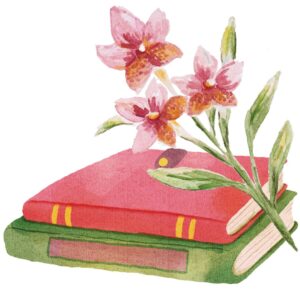Spoiler-Free Review
If you’re looking for a book that will make you feel, then The Four Winds is for you. I rode waves of rage, then indignation, then desperation – and I left the story with a better understanding of both history and poverty.
Click here for content warnings.
What’s The Four Winds about?
This story follows Elsa as famine swallows her life and home, eventually forcing her to make the agonizing choice between staying on the farm (but facing unrelenting dust storms) or going west (but with no certainty of a better life for her and her children).
This book made me sad and infuriated. 5 stars.
When I tell you this book doesn’t give you a break, I mean it. It paints a poignant picture of the “Greatest Generation” — the generation that grew up during WW1 and lived through the Great Depression.
This book spans years. We first meet Elsa in the 1920s. She’s a young woman living at home with a family that doesn’t love her and who makes her believe she’s ugly. They discourage and disallow her dreams. Our first inklings of anger are directed at her parents, who are the most contemptable kind of “nice, hard-working Americans.” Of course, it’s the roaring twenties at this point, so we know the tides are about to turn.
We follow Elsa through the years and trials that take her to a new farm and family, where she has children of her own. Hardship after hardship begin to take their toll. I felt so deeply for her heartaches and fears as she faced the single hardest decision she’d ever had to make. Then, every time I thought she had nothing more to lose, this story again proved me wrong.
“We draw our strength from the very despair in which we have been forced to live. We shall endure.”
As much as this story is about the hard times, it’s also about the trials and tribulations of motherhood, and the sometimes tumultuous nature of mother-daughter relationships. Her daughter, Loreda, is not only coming of age during this volatile moment in history, but is full of rage. Rage that she can’t always tamp down, and sometimes directs at her mother.
“A warrior believes in an end she can’t see and fights for it. A warrior never gives up. A warrior fights for those weaker than herself. It sounds like motherhood to me.”
I also felt I learned a lot about several specific areas in history through the lens of this story: farmers in the Great Plains during the famine and dust storms, the realities of poverty and the “Hooverville” shanty towns, the prejudices faced by those who’ve fallen on hard times, communism, unionization, and the westward migration during the Great Depression. These were all things I knew about from that era, but nothing I truly understood.
Should you read The Four Winds?
I recommend to historical fiction fans and those who enjoy stories about motherhood, family, and fighting to overcome hard times. It’s a very emotional read, so be prepared to feel the full spectrum. It’s the kind of important read that teaches you something, with messages that are still relevant in today’s world.
Check out some of my other recent blogs:









3 responses to “The Four Winds: Depressing and enlightening”
I’ve been meaning to pick up Kristin Hannah’s novels for so long! Glad to see you enjoyed this one
This was my second Kristin Hannah book, I also really loved The Great Alone! I highly recommend both. I still haven’t read The Nightingale though, but I heard that one is her best yet.
Sounds like this one took you for a ride!